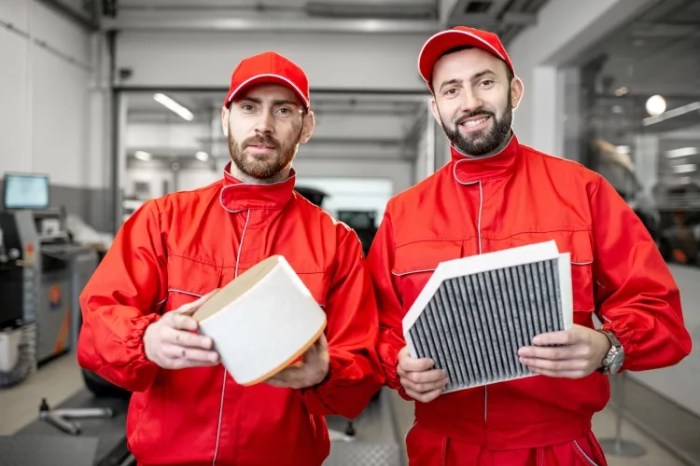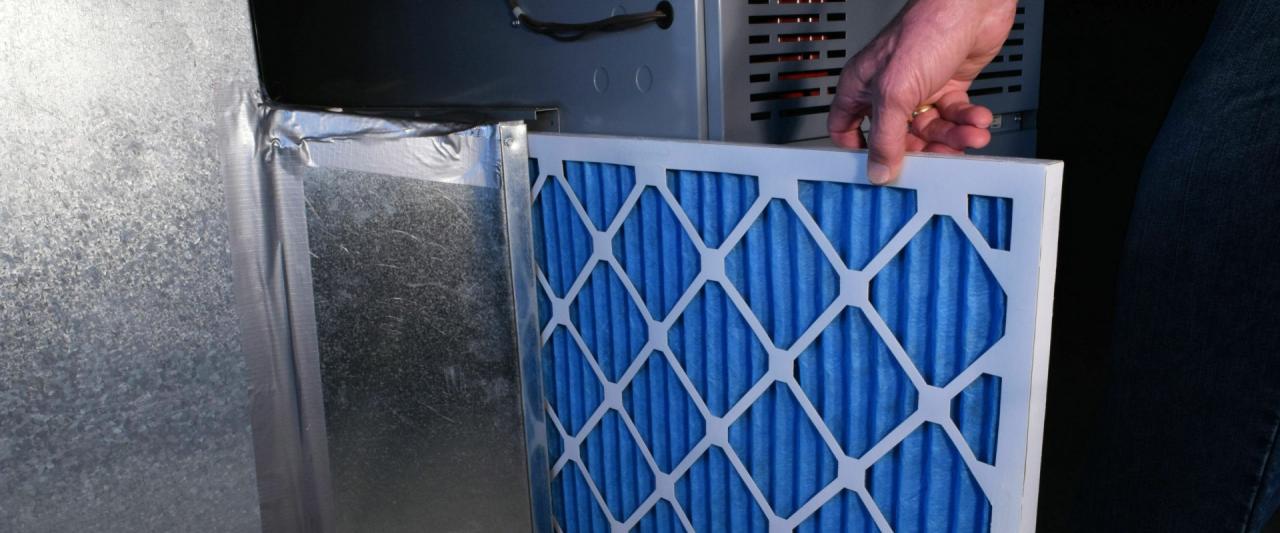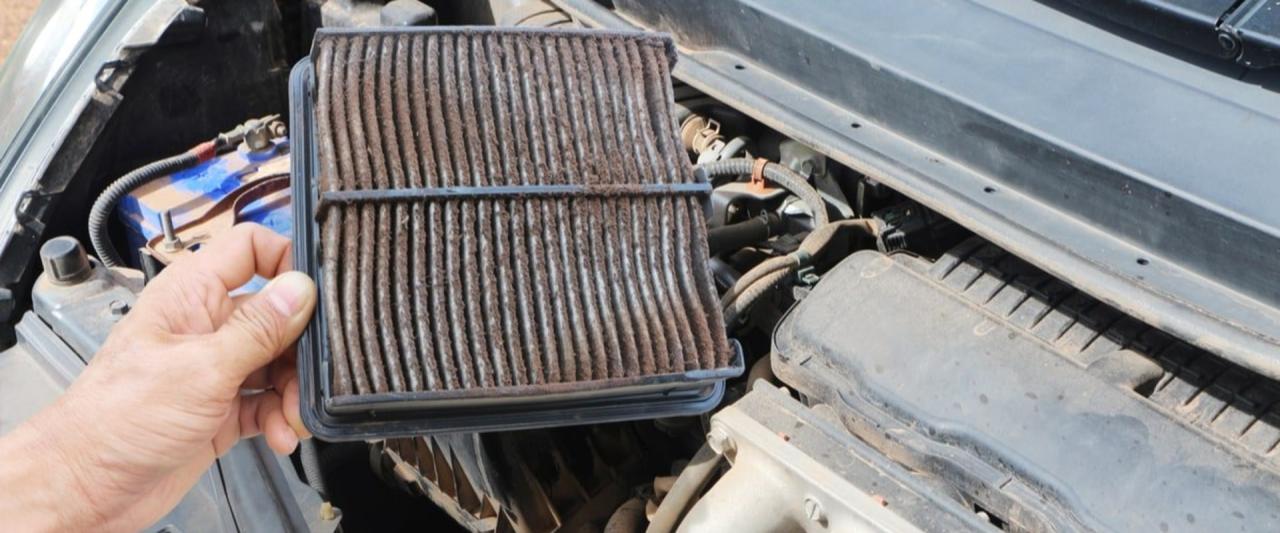How often to replace air filter is a question that many homeowners overlook, yet it plays a crucial role in maintaining a healthy indoor environment. Air filters are the unsung heroes of HVAC systems, trapping dust, allergens, and pollutants to ensure the air you breathe is clean and safe. When filters are neglected, not only does air quality suffer, but your entire HVAC system can also become less efficient, leading to increased energy costs and potential health issues.
Understanding the importance of timely air filter replacement is essential, as it directly impacts your comfort and well-being. Regular maintenance of your air filters can lead to significant benefits, including improved air quality, reduced allergens, and lower energy bills. In this guide, we’ll explore how often to replace air filters, signs that indicate it’s time for a change, and tips for choosing the right filter for your home.
Importance of Air Filters

Air filters play a crucial role in maintaining the efficiency and cleanliness of HVAC systems. By trapping dust, pollen, pet dander, and other airborne particles, they ensure that only clean air circulates throughout your home. This is essential not only for comfort but also for health, as poor air quality can lead to a range of respiratory issues.
Maintaining clean air filters can significantly improve the efficiency of your HVAC system, leading to lower energy bills and extended equipment lifespan. Clean filters contribute to better airflow, which enhances the overall performance of heating and cooling systems. On the other hand, dirty air filters can severely impact indoor air quality, leading to an accumulation of allergens and pollutants that can affect your health.
Signs That Your Air Filter Needs Replacement, How often to replace air filter
Recognizing when to replace your air filter is vital for ensuring optimal performance of your HVAC system. There are several common indicators that your air filter requires a change:
- Reduced airflow from vents
- Increased energy bills despite consistent usage
- Visible dirt and dust buildup on the filter
- Unpleasant odors coming from the HVAC system
- Increased allergy or asthma symptoms within the home
As air quality declines with a clogged filter, it often leads to noticeable symptoms such as difficulty breathing, persistent coughing, or increased allergy flare-ups. A visual inspection can be done by removing the filter and checking its surface; if it appears dark or heavily soiled, it’s time for a replacement.
Recommended Replacement Frequency

Standard guidelines suggest that air filters should be replaced every 1 to 3 months. However, several factors can influence this frequency:
- Location: Homes in dusty or polluted areas may require more frequent changes.
- Lifestyle: Households with pets or smokers generally need to replace filters more often.
- Type of filter: Different filters have varying lifespans and maintenance needs.
The table below shows general replacement frequencies for various types of filters:
| Filter Type | Replacement Frequency |
|---|---|
| HEPA Filter | 6-12 months |
| Disposable Filter | 1-3 months |
| Washable Filter | 3-5 months |
Types of Air Filters
There is a diverse range of air filters available on the market, each with its unique capabilities. Understanding these types can help you make an informed choice:
- HEPA Filters: Highly efficient in capturing tiny particles, typically lasting longer.
- Disposable Filters: Convenient but require regular replacements and are less eco-friendly.
- Washable Filters: Cost-effective and reusable, but require regular cleaning and maintenance.
The pros and cons of each filter type can be summarized as follows:
| Filter Type | Pros | Cons |
|---|---|---|
| HEPA | Excellent particle removal | Higher initial cost |
| Disposable | Convenient and easy to replace | Less effective over time; generates waste |
| Washable | Long-term savings | Requires effort to clean |
Maintenance Tips for Air Filters
Proper maintenance of air filters is essential for maximizing their efficiency and longevity. Here are some best practices:
- Regularly check filters, ideally every month, to assess their condition.
- Follow the manufacturer’s guidelines for replacement frequency.
- Ensure proper installation of the filter to avoid air leaks.
- Consider setting reminders for routine checks and replacements.
When checking and replacing filters, follow these steps:
- Turn off the HVAC system.
- Locate the filter compartment.
- Remove the old filter and inspect it.
- Insert the new filter, ensuring it fits snugly.
- Turn the system back on.
In addition to filter maintenance, regular HVAC system check-ups can prevent larger issues down the line, ensuring the entire system operates efficiently.
Consequences of Neglecting Air Filter Replacement
Failing to replace air filters on time can lead to a variety of issues. Over time, a dirty filter can cause the HVAC system to work harder, leading to increased wear and tear on vital components. This can ultimately result in costly repairs or a complete system failure.
Long-term neglect can also lead to significant increases in energy consumption, with studies indicating that a clogged filter can increase energy usage by up to 15%. Regular maintenance is not just about comfort; it’s also a matter of financial prudence.
Special Considerations for Allergies and Asthma

Air filters play a crucial role in supporting individuals with allergies and asthma. Choosing the right type of filter can significantly enhance indoor air quality for sensitive individuals. HEPA filters are particularly recommended for their ability to trap allergens such as pollen, dust mites, and pet dander.
Strategies for improving air quality through regular filter maintenance include:
- Using high-efficiency filters designed for allergy sufferers.
- Regularly cleaning and vacuuming to reduce dust in the environment.
- Implementing a schedule for changing filters based on allergy seasons.
By taking these proactive steps, individuals with respiratory issues can enjoy a healthier living space free from airborne irritants.
End of Discussion: How Often To Replace Air Filter
In conclusion, knowing how often to replace air filter is vital for maintaining a healthy living space and ensuring the efficiency of your HVAC system. Regularly changing your air filter not only enhances air quality but also extends the lifespan of your system, saving you money in the long run. By staying proactive and informed about air filter maintenance, you can create a cleaner, healthier home environment for you and your family.